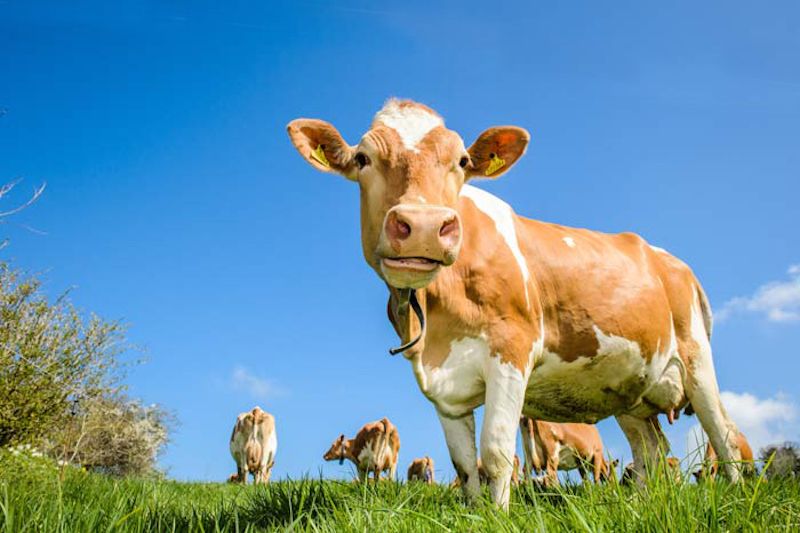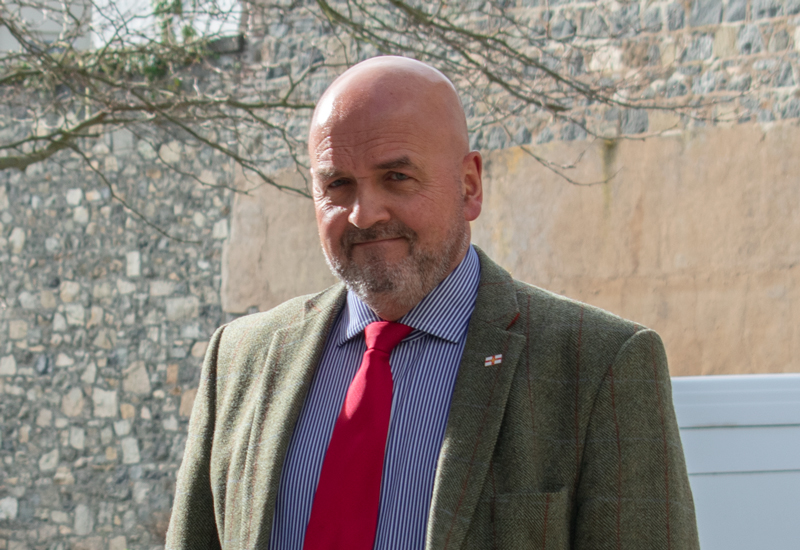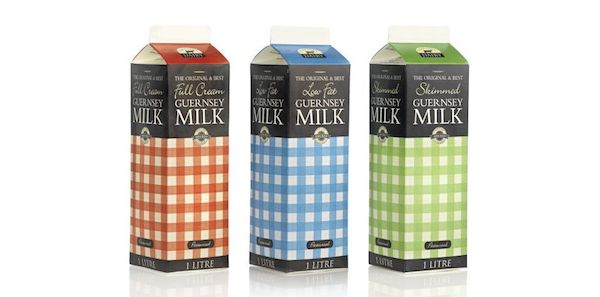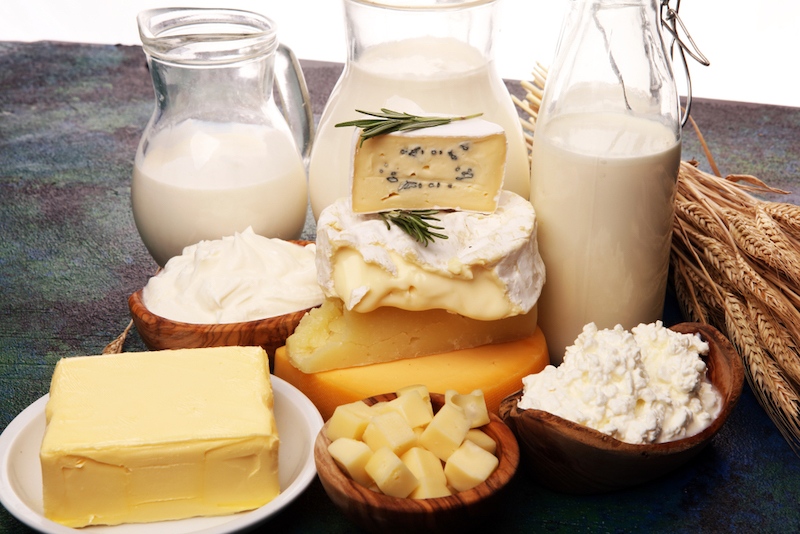


Dairy farmers are asking that they, and their cows, are not forgotten as the States looks at the island's finances as we emerge from the covid-19 enforced lockdown and decide what is a priority for public spending post-pandemic.
Plans to protect the future of the Guernsey Dairy, by redeveloping it on the current site or building a new one elsewhere, were already in the pipeline well before the corona virus was detected in China.
Proposals for the Future Guernsey Dairy Project were published in March, after an in-depth review of the industry was ordered almost a decade earlier.
The proposals, which can be found HERE, ask deputies to reaffirm the previous States' policy that ensures protection for the States-owned Dairy, to protect the Guernsey cow as a breed and that the dairy farming industry is inextricably linked to sustaining the island's rural environment and agricultural economy.

Pictured: Guernsey Dairy has been on its current site since 1951 and was last refurbished 30 years ago.
The States Trading Supervisory Board, which manages the Dairy, also wants the Future Dairy Project to be included within the island's capital portfolio so the multi million pound work it demands be funded from the island's Capital Reserve.
However, as the covid-19 crisis hit after the Project proposals had been published, the Policy and Resources Committee has said it won't support it, and is asking other States' members to vote no as well.
Speaking on behalf of P&R, Deputy Jonathan Le Tocq said: "The Future Guernsey Dairy Project has not been previously prioritised by the States and is not currently included in our portfolio of priority projects. It is our belief that it should be considered against the same criteria as all other competing schemes. Ultimately, it will be the Assembly’s decision as to which policy areas and capital schemes are prioritised and carried forward into the recovery action plans.
"Outside of the short-term actions established by the Recovery Strategy, nothing has yet been prioritised or deprioritised by the Committee; indeed the Assembly itself has continued to meet and resolve its actions on a continuing and diverse list of policy matters since the outbreak of COVID-19 in Guernsey."

Pictured: Deputy Jonathan Le Tocq.
The Guernsey Farmers Association is asking the States to invest in the dairy though, saying it would give the industry a major boost, at a time when everyone should see it as an important part of the plan to 'revive and thrive' the economy.
President, Dave Cowley said: "Investment in the Guernsey Dairy should be seen as an important part of the island’s 'Revive and Thrive' strategy," adding that "proposals to build a new dairy or refurbish the current facility would be a 'tremendous boost' to the island’s agricultural industry. It will help support jobs and maintain the contribution that dairy farming makes to the island, financially and environmentally, as well as protecting the countryside and preserving of the world famous cattle breed.
"This should not be forgotten as the island looks to recover from the COVID-19 crisis."
Mr Cowley said farming provides employment, both directly and in various support roles, such as veterinary services, mechanics, and at the Guernsey Dairy itself.
“Since the island went into lockdown, healthcare staff and other frontline workers, like shop staff, have been singled out for praise, rightly so. At the same time, dairy farmers have gone largely unnoticed, but our lives have not changed. Our cows didn’t know it was lockdown,” he said.

Pictured: Guernsey Dairy's most popular product is unsurprisingly its milk.
“We’ve carried on working seven days a week, throughout the lock-down, making sure islanders had a constant supply of fresh milk and milk products. And so have all the people working in support roles.”
“It is critical now that it does not get forgotten as we move out of lockdown and begin to focus on recovery. Dairy farming in Guernsey is part of our heritage, and we are a home to a world-renowned breed. The industry has shaped the rural character of the island, and helps maintain it to this day, with our traditional small fields and miles of lovely hedgerows.
“If we are going to protect this, we need to have a modern, fit for purpose dairy, because without it dairy farming in Guernsey will go into decline. The current proposals would therefore be a tremendous boost to the industry, for decades to come.”
Nearly half the island, by area, is agricultural land. Of that total, around half is used by dairy farmers.
Mr Cowley said liquid milk is possibly the only fresh product that the island is self-sufficient in. The other main commercial crop that are grown locally would be potatoes and mushrooms.
“With all the focus on environmental footprint, the island should be looking to become more self-sufficient, not less. So we have to start by protecting what we currently have.”
The island now has 14 active dairy farms, with around 1,500 cows.
Mr Cowley said farming in Guernsey is expensive compared to the UK and European markets. All feeds, fertilisers, building materials and equipment have to be imported, and the relatively small size of farms and fragmentation of land make it less intensive. Labour costs are also higher. All these factors meant the price of local milk is much higher than elsewhere.

Pictured: Guernsey Dairy produces butter, cheese, cream and ice cream as well as milk.
The Guernsey Dairy has been on its current site since 1951, and was last refurbished more than 30 years ago.
Mr Cowley said farmers work very closely with the Dairy. The GFA also has a representative on the Dairy Management Board, which oversees its operation. He said the two are inextricably linked.
“If we don’t have a working dairy, farmers would have to process their own milk, and there is just not the economies of scale. The alternative would quickly lead to the decline of the dairy industry, which would impact on biodiversity, the countryside, and the island’s rural character. That is why it is important that we protect the industry.”
The States are due to debate the Future Guernsey Project today. If they don't get on to the topic before the end of the day it will be postponed until the next scheduled meeting, on 15 July.
Pictured: One of Guernsey's famous cows.
Comments
Comments on this story express the views of the commentator only, not Bailiwick Publishing. We are unable to guarantee the accuracy of any of those comments.